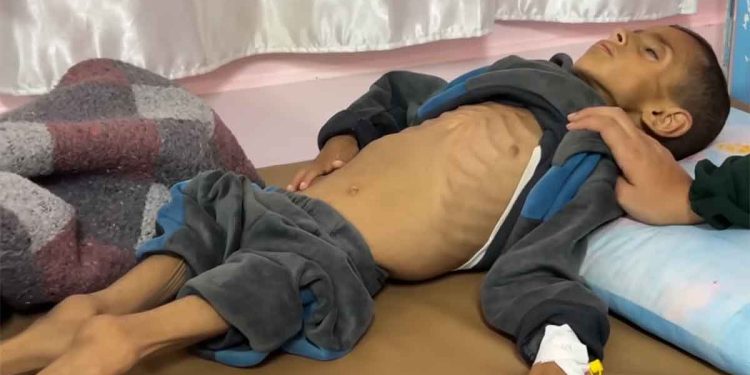Children in Gaza are enduring a humanitarian catastrophe that continues to deepen under an unrelenting Israeli military siege. Over two million Palestinians, the majority of them women and children, are surviving in what international observers describe as unliveable conditions. The deliberate deprivation of food, water, and medical care has pushed thousands to the brink of death, with many already succumbing to hunger, disease, and direct military attacks.
Local and international agencies report a complete collapse of the healthcare system, with hospitals lacking electricity, fuel, medicines, and staff. In this vacuum of care, preventable illnesses are now proving fatal, particularly among children. According to Gaza’s Ministry of Health, over 16,500 children have been killed since October 2023, with thousands of others suffering from severe malnutrition and easily treatable conditions that remain untreated due to the blockade.
A spokesperson for UNICEF visiting southern Gaza recently described the situation as “desperate and devoid of hope”, noting that families are facing impossible choices between safety and survival. Many parents, the spokesperson said, are going without food for days in order to provide their children with a single meal, as humanitarian convoys remain largely blocked or attacked before reaching distribution centres.
Residents interviewed in Khan Younis spoke of spending their nights beneath bombardment and their days searching for food and clean water. They reported that even temporary ceasefires have failed to improve access to aid, with Israeli restrictions preventing the entry of essential supplies. In parallel, ongoing military operations have destroyed homes, schools, and hospitals, further undermining the basic infrastructure needed to support life.
Since the beginning of the war in October 2023, more than 180,000 Palestinians have been killed or injured, including over 11,000 reported missing. At least 1.5 million people have been displaced, often forced to flee multiple times without access to shelter or assistance. Human rights organisations say the repeated targeting of displaced persons, aid convoys, and children constitutes a pattern of violations that may amount to war crimes.
The continued closure of crossings and the obstruction of aid are not isolated incidents but part of a broader policy that has weaponised hunger and restricted humanitarian relief. Observers have warned that the current pattern reflects a systematic strategy of forced displacement, destruction of civilian infrastructure, and collective punishment.
Despite calls by the International Court of Justice and various UN bodies for an immediate end to hostilities and unimpeded humanitarian access, military operations persist. The cost is borne overwhelmingly by civilians, and children are at the centre of this suffering.
What is taking place in Gaza today cannot be viewed as a temporary crisis or a failure of aid coordination. It is a manufactured famine, implemented in tandem with a policy of military aggression and enforced isolation. It represents a comprehensive breakdown of international humanitarian law and demands an immediate and sustained response from the global community to halt the violations and protect the remaining civilian population.




























